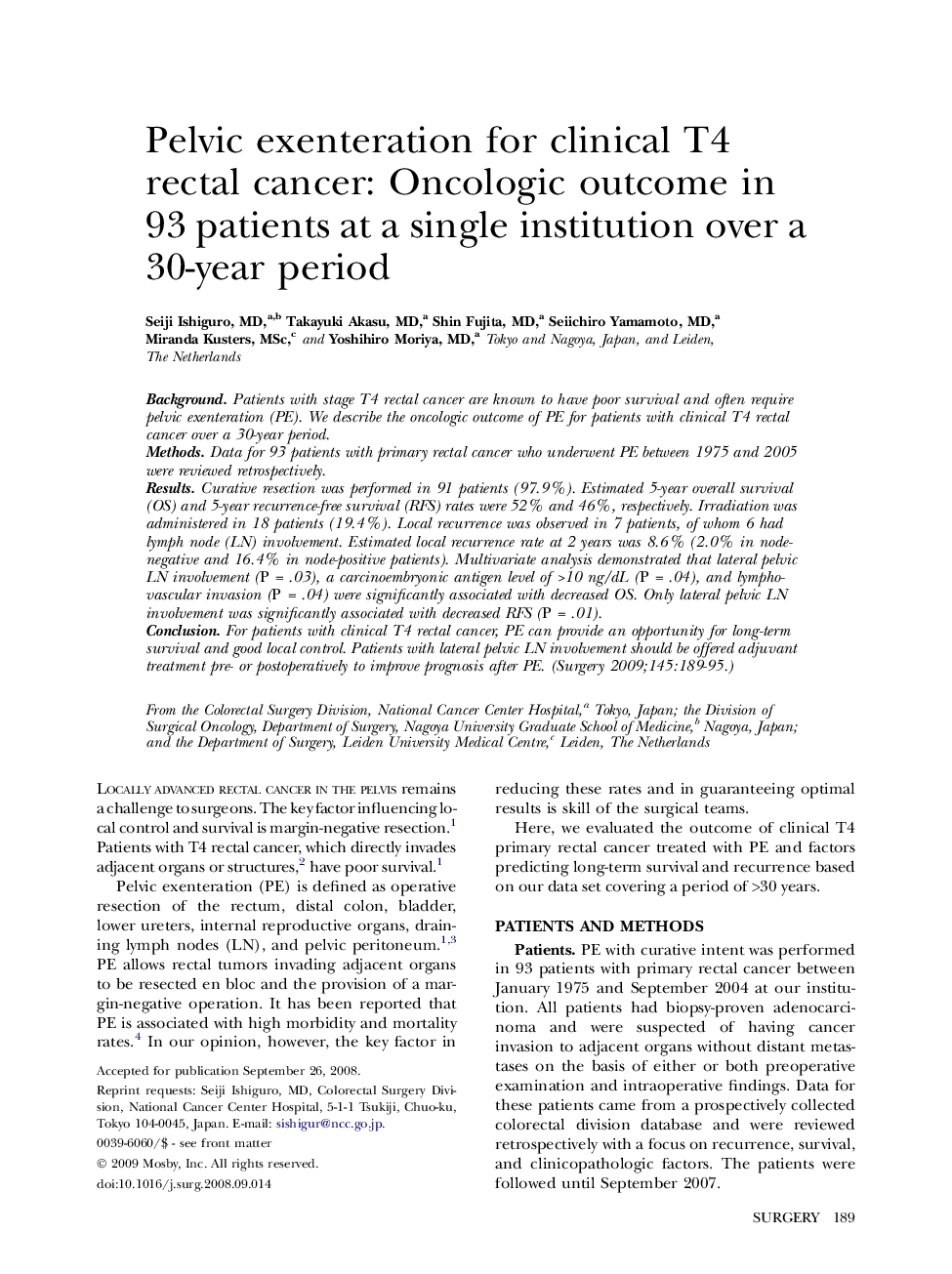| Article ID | Journal | Published Year | Pages | File Type |
|---|---|---|---|---|
| 4309142 | Surgery | 2009 | 7 Pages |
BackgroundPatients with stage T4 rectal cancer are known to have poor survival and often require pelvic exenteration (PE). We describe the oncologic outcome of PE for patients with clinical T4 rectal cancer over a 30-year period.MethodsData for 93 patients with primary rectal cancer who underwent PE between 1975 and 2005 were reviewed retrospectively.ResultsCurative resection was performed in 91 patients (97.9%). Estimated 5-year overall survival (OS) and 5-year recurrence-free survival (RFS) rates were 52% and 46%, respectively. Irradiation was administered in 18 patients (19.4%). Local recurrence was observed in 7 patients, of whom 6 had lymph node (LN) involvement. Estimated local recurrence rate at 2 years was 8.6% (2.0% in node-negative and 16.4% in node-positive patients). Multivariate analysis demonstrated that lateral pelvic LN involvement (P = .03), a carcinoembryonic antigen level of >10 ng/dL (P = .04), and lymphovascular invasion (P = .04) were significantly associated with decreased OS. Only lateral pelvic LN involvement was significantly associated with decreased RFS (P = .01).ConclusionFor patients with clinical T4 rectal cancer, PE can provide an opportunity for long-term survival and good local control. Patients with lateral pelvic LN involvement should be offered adjuvant treatment pre- or postoperatively to improve prognosis after PE.
